
Summer Sessions
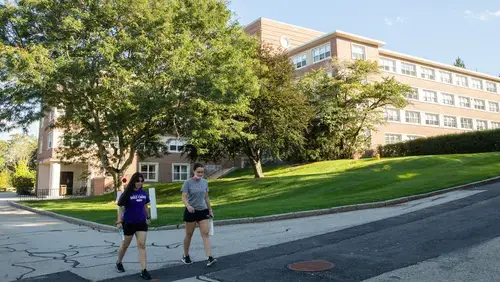
Enroll in Summer Classes at Holy Cross
Review instructions, required forms and deadlines from the Registrar's Office.
Features to the Summer Session Program in 2025!
- A new and interesting slate of courses.
- All courses are online-only.
- Most courses are held in the evenings.
- There are 6 hours of instruction per week (1.0 credits) for 7 weeks.
Most courses have 2 hours of asynchronous learning (replacing 2 hours of synchronous meetings) per week. The amount of homework and other out-of-class assignments have not changed.
Full instructions and course descriptions below. For additional information or questions, email us at: summersession@holycross.edu.
2025 Summer Session Enrollment Instructions
- Summer Session runs for 7 weeks: June 2 - July 18, 2025.
- Enrollment opens for Holy Cross students on March 12, 2025.
- Class sizes of 24 or less.
- Courses taught, with office hours, by Holy Cross faculty.
- Courses have the same standards/expectations as seen during the academic year.
- Tuition: $2,997 per 1.0-unit course (plus additional lab or art fees, where appropriate).
- Financial aid will be available to eligible current Holy Cross students with demonstrated need or extenuating circumstances. All HC students unable to pay the full tuition are encouraged to apply, starting on February 27, 2025 (Financial Aid Application Form).
- Permission to take two courses requires the approval of a class dean.
- Courses can be taken Pass/No Pass at same cost (but do not count toward 32 course requirement unless grade is uncovered before graduation).
- Course grade factors into Holy Cross GPA if taken for letter grade.
- Each course must have a minimum number of students enrolled to run. If enrollment does not reach the necessary minimum by mid-May, the course will be canceled and all payments will be refunded.
Enrollment opens on March 12, 2025 and remains open until May 30, 2025. All students need to submit an Enrollment Form (Enrollment Intent and Agreement Form) to be term-activated. You will then be notified when you are cleared to self-enroll in an open summer course through STAR.
Accepted Holy Cross students in the Class of 2029 with a compelling academic reason to take one of our online courses through fully remote access from off campus in summer 2025 need to first contact their class dean (classdean2028@holycross.edu). Other current high school seniors should first contact the Director (summersession@holycross.edu) if interested in taking one of our online courses through fully remote access from off campus in summer 2025.
In addition to the Enrollment Form (Enrollment Intent and Agreement Form), students from other Colleges/Universities will also need to submit a completed Authorization Form from their home institution; this form will need to be approved by Holy Cross before enrollment is permitted. Full tuition payment of $2,997 is due at time of enrollment (see Guest Payment Instructions).
Enrollment by applicants who are not currently matriculated students at Holy Cross is subject to acceptance by the College, available seating in courses, and approval by the individual professors.
Financial Aid is available for eligible current Holy Cross students. Eligibility levels are established in part by the student's Holy Cross demonstrated financial need as determined by the Financial Aid Office. Additional aid is available for students with extenuating circumstances. All HC students unable to pay the full tuition are encouraged to apply: Financial Aid Application Form.
- February 13: Course Suggestion Form Opens
- February 27: Rolling Financial Aid Application Form Opens – Holy Cross students only
- March 12: Open Enrollment Through Enrollment Intent and Agreement Form for Holy Cross students
- March 20: Open Enrollment Through Enrollment Intent and Agreement Form for Students Outside Holy Cross - Authorization Form also required and full payment due at time of enrollment (Guest Payment Instructions)
- March 28: Financial Aid Application Form Due for Full Consideration in First Round
- April 11: First Round Financial Aid Awards Announced; after that, individual responses within 2 weeks of application submission
- April 28: Tuition Due in Full ($2997 less any financial aid) or Students will be Withdrawn (No Fees) - See Holy Cross Student Payment Instructions or Guest Payment Instructions
- After April 28: Tuition Due in Full ($2997 less any financial aid) upon posting of bill to account (usually within two business days from Time of Enrollment Through Enrollment Intent and Agreement Form) - (See Holy Cross Student Payment Instructions or Guest Payment Instructions)
- May 1 – June 2: Withdrawals by Student or Bursar (for lack of prompt payment) will incur a Processing Fee (10% of tuition paid)
- May 30: Last Day to Add a Course
- June 2: Summer Session Begins
- June 3: Last Day for Students to Withdraw with small Processing Fee (10% of tuition paid)
- June 4: Students Withdraw with large Processing Fee of (50% of tuition paid)
- After June 4: Student to Withdraw with maximum Processing Fee (100% of tuition paid)
- June 6: Last Day to Drop Without Record
- June 13: Last Day to Elect Pass/No Pass (Standard P/NP Policies Apply)
- June 19: Holiday, No Classes
- July 4: Holiday, No Classes
- July 7: Last Day to Withdraw (W Posted to Transcript)
- July 18: Summer Session concludes
Payment of tuition charges ($2997, plus art fee where applicable, less any awarded financial aid) is due when course enrollment is billed to your account (usually within two business days of course enrollment) - see Holy Cross Student Payment Instructions or Guest Payment Instructions. After April 28, 2025, students showing an unpaid summer tuition balance due for two days will be dropped from the course (and charged a processing fee - See 2025 Tuition Refunds).
If the College cancels a course, you will receive 100% of the tuition at time of cancellation, if you do not wish to enroll in a different open course.
Withdrawals by April 28, 2025 will not incur any fees.
PLEASE NOTE: The College will charge you a processing fee equal to 10% of the original net summer tuition charges if you withdraw from May 1 - June 3, 2025, 50% of the original net summer tuition charges if you withdraw on June 4, 2025, and 100% of the original net summer tuition charges if you withdraw after June 4, 2025. This schedule applies in lieu of the College's Refund Policy.
Tuition - $2,997 per 1.0-unit course (plus additional lab or art fees, where appropriate)
Optional summer housing (and/or meal plans) carry additional charges and requires the completion of a separate application. Summer Session does not award financial aid toward housing/meals. Students with questions about staying on campus during the summer session should contact the Residence Life & Housing Office (summerhousing@holycross.edu).
2025 Summer Session Courses
Instructor Name: Dr. Robert Prior
Course Number and Name: ACIP 380, The Business of Sport
Common Area Requirement(s) fulfilled: N/A
Program(s) Requirement(s) fulfilled: N/A
Prerequisite(s)/Permission of Instructor: Permission from ACIP
Meeting Time: Tuesdays and Thursdays, 6-8pm EST plus 2 hours of unscheduled asynchronous time per week.
Course Description: This course provides a comprehensive foundation of the economic, organizational, legal and political components of the business of sport. It will present the dilemmas faced by today’s sports business leaders and apply concepts to create an understanding of the financial drivers underlying sport business at the collegiate and professional levels.
Note: Students will participate in a required internship for 8-10 hours per week; 30% of the final grade for the course will be based on internship evaluations. Students should apply to the AIP Program in order to receive a permission code for the course. It is not necessary to have an internship lined up before you sign up for the program.

Instructor Name: Prof. Karen Ober
Course Number and Name: BIOL 114, Evolution
Common Area Requirement(s) fulfilled: Natural Science
Program(s) Requirement(s) fulfilled: none
Prerequisite(s)/Permission of Instructor: none
Meeting Times: Tuesday and Thursday 6-8pm EST plus 2 hours unscheduled asynchronous time
Course Description: All living things are the direct result of evolutionary processes acting over the course of millions of years. Natural selection, mutation, random genetic drift, and other forces act at all levels of biological organization (genes, individuals, populations, species, and ecosystems) to generate and maintain the dazzling biodiversity we see on our planet. Understanding the basic tenets of evolution is essential to not only having an appreciation for the biological sciences, but for appreciating all life. This course will cover topics such as: the origin and diversity of life, human evolution, cultural evolution, sociobiology, sexual selection, altruism, Darwinian medicine and health related issues.

Instructor Name: Alimatu Acheampong
Course Number and Name: BIOL 199, Introduction to Human Nutrition
Common Area Requirement(s) fulfilled: Natural Science
Program(s) Requirement(s) fulfilled: Appropriate for students interested in allied health, health sciences, and public health.
Prerequisite(s)/Permission of Instructor: None
Meeting Times: Mondays, Wednesdays, and Thursdays 6-8pm EST
Course Description: This course introduces students to the science and principles of nutrition, with emphasis on how nutrition influences health and wellbeing. Topics covered will include the function of nutrients in the body, the physiological processes involved in digestion and absorption, the role of nutrition throughout the human life cycle, and the relationship between food substances and diseases such as heart disease, cancer, and obesity.

Instructor Name: Love Odetola
Course Name and Course Number: CISS 150: Introduction to Global Health
Common Area Requirement(s) fulfilled: Cross-Cultural Studies
Program(s) Requirement(s) fulfilled: Health Studies Major Requirement
Prerequisite(s)/Permission of Instructor: N/A
Meeting Times: Tuesday and Thursday 5-7pm EST plus 2 hours unscheduled asynchronous time
Course Description: Poverty is a key driver of many preventable diseases, while national development often leads to improved health outcomes. Understanding the connection between health and development requires considering broader socio-political and economic factors. In the context of globalization and international development, a complex international health regime has emerged. This course explores the linkages between health and development within the international political economy of health. Key topics include global health concepts and architecture, the global burden of disease, health and development in nations, and the political-economic determinants of health. Using social, economic, and epidemiological perspectives, the course emphasizes public health and entrepreneurial approaches to addressing health challenges and driving improvements in resource-constrained and emerging nations.

Instructor Name: Elizabeth Seidler
Course Number and Name: ECON 149, Statistical Analysis
Common Area Requirement(s) fulfilled: Mathematical Science
Program(s) Requirement(s) fulfilled: biology, economics, neuroscience, psychology, sociology, statistics, and health professions
Prerequisite(s)/Permission of Instructor: none
Meeting Times: Mondays and Wednesdays 5:30 -7:30pm EST plus 2 hours asynchronous
Course Description: This course introduces probability and statistics. After covering the basic summary statistics, the course transitions into the construction and the rules of probability, such as the permutations and combinations, addition law, multiplication law, conditional probabilities, and Bayes's Theorem. This knowledge is necessary for the study of random variables, which is the focus of the remainder of the course. Within random variables, topics include discrete random variables, continuous random variables, probability distribution functions, cumulative probability distribution functions, expected values, variances, sampling, confidence intervals, hypothesis testing, and the Central Limit Theorem. The course concludes with an introduction of least squares estimation that focuses on interpretation of the estimates and goodness-of-fit.

Instructor Name: Hayley Stefan
Course Number and Name: ENGL 259: Disability and Literature
Common Area Requirement(s) fulfilled: Literature, Cross-Cultural Studies *pending approval of Curriculum Committee
Program(s) Requirement(s) fulfilled: N/A, for self-designed/CIS majors/minors, please check with program director & advisor
Prerequisite(s)/Permission of Instructor: None
Meeting Times: Monday and Thursday 6-8pm EST, as well as two asynchronous hours of class time
Course Description: This course guides us in learning about disability & the field of Critical Disability Studies through the critical and creative works of disabled writers. We will examine how physical, mental, and emotional disability have been portrayed across U.S. literature and popular culture—historically, often without the input of disabled people themselves. At the same time, we will draw upon the critical writing of disabled writers to help us consider the benefits and damages of such representations of disabled people in the public imaginary, while simultaneously reflecting on our own roles as learners and creators in our own communities. Our course discussions and materials will situate these conversations within the development of disability rights in the U.S., including the 20th-century Disability Rights Movement, anti-psychiatry/Mad Pride, the autism rights movement, and Disability Justice. Students will practice attending to embodiment & health in literature and rhetoric with an intersectional awareness of access, emotion, and movement.
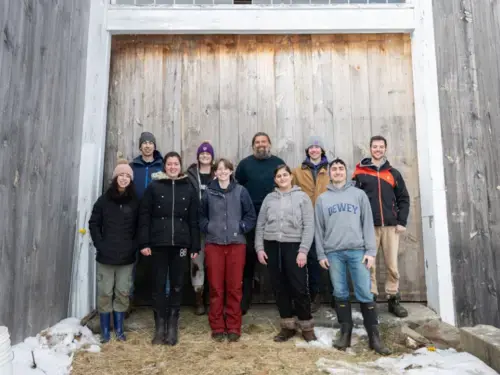
Instructor Name: Chris Staysniak
Course Number and Name: HIST 122, Food, Power, and the Environment
Common Area Requirement(s) fulfilled: Historical Studies
Program(s) Requirement(s) fulfilled: History Major, Environmental Studies; Peace and Conflict Studies
Prerequisite(s)/Permission of Instructor: None
Meeting Times: Monday and Thursday 8-10pm EST plus 2 hours of unscheduled asynchronous time
Course Description: The story of the American food system Is fundamentally an environmental one. Food production has evolved from a process that was bound by seasonal and regional limitations to a highly industrialized and astoundingly productive system that defies time and space. This course will explore this transformation over time. Along the way we will consider the trade-offs and social and environmental costs of being able to eat whatever we might desire regardless of what time of the year from a food chain that largely exists out of sight and out of mind for consumers. Meal time will never be the same!

Instructor Name: Tim McEldowney
Course Number and Name: MATH 135, Calculus 1
Common Area Requirement(s) fulfilled: Mathematical Sciences
Program(s) Requirement(s) fulfilled: Majors: ECON, BIOL, CHEM, PHYS, NEUR, ACCT, and Health Professions
Prerequisite(s)/Permission of Instructor: high school precalculus or equivalent
Meeting Times: Monday, Wednesday, and Friday 4-6pm EST
Course Description: This is the standard version of Calculus at the College. Considers the calculus of real-valued functions of one variable for students who are planning further coursework in mathematics, a major in the social or physical sciences, or a premedical program. Emphasis is placed on a conceptual understanding of calculus, presenting material from symbolic, numerical, and graphical points of view. The concepts of limit, continuity, and derivative are developed and applied to algebraic, logarithmic, exponential, and trigonometric functions. Applications of the derivative are explored.
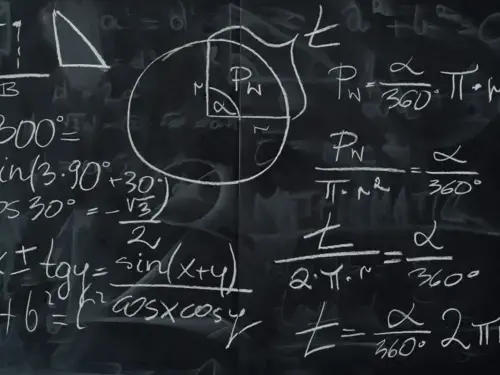
Instructor Name: Kiara Sanchez
Course Number and Name: MATH 136 Calculus 2 (1.25 credits)
Common Area Requirement(s) fulfilled: Mathematical Science
Program(s) Requirement(s) fulfilled: CHEM, ECON, MATH, PHYS, STAT
Prerequisite(s)/Permission of Instructor: MATH 135 Calculus 1 or equivalent
Meeting Times: Tuesday, Wednesday, and Thursday 6-8pm EST plus 2 hours of asynchronous time
Course Description: This course considers the calculus of real-valued functions of one variable for students who are planning further course work in mathematics, a major in the social or physical sciences, or the premedical program. Emphasis is placed on a conceptual understanding of the calculus, presenting material from symbolic, numerical, and graphical points of view. Course content include the theory, evaluation, and applications of integration, sequences and series including Taylor polynomials and series, and an introduction to ordinary differential equations. This course is the prerequisite for Mathematics 241.

Instructor Name: MaryCatherine McDonald
Course Number and Name: PHIL 223, Trauma & the Troubled Mind: The Ethics of Trauma
Common Area Requirement(s) fulfilled: Philosophical Studies
Program(s) Requirement(s) fulfilled: Philosophy major/minor, PCON concentration
Prerequisite(s)/Permission of Instructor: None
Meeting Times: Tuesday & Thursday 6-8pm EST + two hours asynchronous material
Course Description: After trauma, we can find traces of the past in the way we see the world, in our behavior as we relate to others, and even in our genes. But what, exactly, is trauma? And what does it mean to be traumatized? This course examines the very nature of trauma from the perspectives of philosophy, psychology, and neuroscience. While looking critically at the history of the study of trauma, we will turn our focus on the ethical dimensions of understanding and treating trauma. What can we - and what ought we - to do about trauma and our troubled minds? Students pursuing all majors are encouraged to take this course.

Instructor Name: Vickie Langohr
Course Number and Name: POLS 102, Intro to Comparative politics
Common Area Requirement(s) fulfilled: Social Science
Program(s) Requirement(s) fulfilled: one of four Intro classes required for the Political Science major
Prerequisite(s)/Permission of Instructor: None
Meeting Times: Tuesday and Thursday 6-8pm plus two asynchronous hours
Course Description: This course examines the political systems and key challenges facing the citizens of Argentina, China, India, Israel/Palestine, the United Kingdom, and the U.S. We will begin with a central question in comparative politics: do countries require particular attributes in order to maintain democracy? For example, many scholars have argued that a democratic political system requires a capitalist economy. If this is true, does capitalism also produce democracy? If so, when should we expect China, which has long had a primarily capitalist economy, to democratize? We will then examine a) how citizens express anger at the status quo and seek change (including young women’s successful mobilization in the 2010s to legalize abortion in Argentina; protests in China including the 1989 Tiananmen Square protests and more recent activism against COVID policies; and the January 6, 2021 riots at the U.S. Capitol); b) the conditions under which democracies respect the freedoms and safety of religious minorities (focusing on the U.S. and India); and c) the conditions under which Israelis and Palestinians have adopted violent or non-violent methods to achieve their goals.

Instructor Name: Chris Murray
Course Number and Name: POLS 206, Public Policy
Common Area Requirement(s) fulfilled: Social Science
Program(s) Requirement(s) fulfilled: Political Science Elective
Prerequisite(s)/Permission of Instructor: POLS 100
Meeting Times: Monday and Thursday 6-8:30pm EST; plus 1 hour asynchronous work
Course Description: Public policy is created as a result of the interaction of a number of political actors and institutions. The goal of this course is to gain an understanding of these forces and how they shape decisions designed to solve pressing national problems. We will look at how these actors and institutions perceive problems and how they arrive at their desired solutions. As we will see, because of the different perspectives that these forces bring, public policy making is oftentimes a contentious, time-consuming, and compromise filled process—and often results in stalemate or failure. After beginning with an overview of the public policy literature, we will proceed with sections devoted to five major policy making actors in the Washington environment: 1) Congress; 2) the President; 3) the Bureaucracy; 4) Interest Groups; and 5) the Courts. As a result, it is hoped that students develop a comprehensive, yet nuanced, understanding of how policy is created in Washington and why our system produces the policy it does.
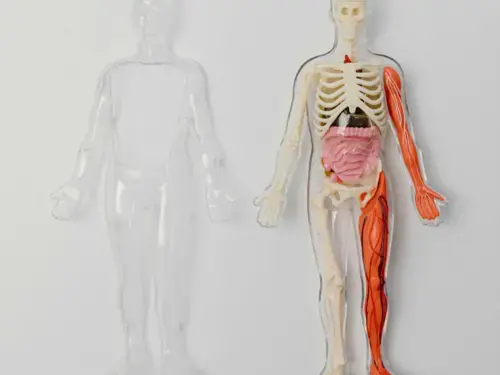
Instructor Name: Ruth McLeod
Course Name and Course Number: PSYC 221, Physiology and Behavior
Common Area Requirement(s) fulfilled: Natural Science, Category A Core Course Requirement
Program(s) Requirement(s) fulfilled: Psychology Biological Process requirement, Neuroscience Additional Neuroscience Course requirement, Biology Cognate Course requirement, Health Studies Natural Sciences and Statistics requirement
Prerequisite(s)/Permission of Instructor: PSYC 100 or NEUR 110. Students without prerequisites should consult instructor.
Meeting Times: Tuesday and Thursday 6-8 PM EST, 2 Hours unscheduled asynchronous time
Course Description: This course will cover physiological perspectives on the biological basis of behavior, rooted in a combination of concepts and experimental methods drawn from psychology, physiology, and the field of behavioral neuroscience. We will explore how behavioral neuroscience informs us about motivation, emotion, and cognition. As the nervous system plays a central role in the integration of behavior, the first part of the course will introduce the fundamentals of neuroscience, including basic functional neuroanatomy, neurophysiology, and neurochemistry. The second part of the course will give an overview of genetic influences on the brain, neurodevelopment, and sexual differentiation, and begin to look at how vertebrates interact with the world, movement and sensation and perception. The third portion of the course will cover the neuroendocrine control of behaviors such as sleep and hunger. This section will also cover more complex psychological phenomena like learning, memory, and responses to stressors. Finally, the fourth part of the course will address clinically defined states such as brain injury, mood disorders, schizophrenia, and developmental disorders, as well as altered states of consciousness (and intro to neuropsychopharmacology).

Instructor: Caner Dagli
Course Number and Name: RELS 107, Islam
Common Area: Cross-Cultural Studies, Studies in Religion
Programs: Africana Studies, Middle East Studies
Prerequisites: None
Meeting Times: Tuesday & Wednesday 6-8pm EST + 2 hours of asynchronous time
Course Description: Examination of Islamic religious beliefs and practices from the origins of Islam to the present. Particular stress is placed on Islamic religious ideals, institutions and personalities. Central topics include: Islamic scripture and traditions, prophecy, law, rituals, theology and philosophy, sectarianism, mysticism, aesthetic ideals, art and architecture, pedagogy, and modern reinterpretations of the tradition.
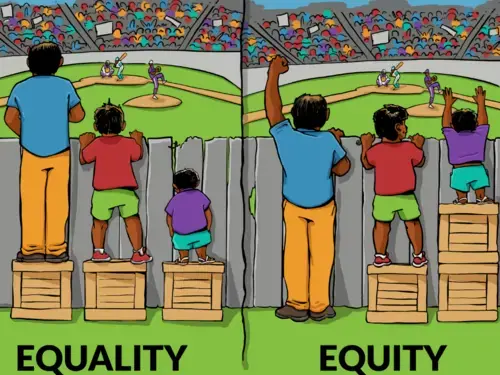
Instructor: Renee Beard
Course Number and Name: SOCL 263 Medical Sociology
Common Area: Social Science
Programs: Sociology Major
Prerequisites: None
Meeting Times: Tuesday and Thursday 4-6pm EST plus 2 hours unscheduled asynchronous time
Course Description: This class explores the Sociology of Health & Illness at the micro, mezzo and macro levels. We will examine questions like: How do individuals experience and narrate illness or disability? How do social interactions and roles shape perceptions and subjective accounts of various ailments? How do social structures, such as the medical, pharmaceutical and insurance industries, influence understandings of and approaches to health, illness, difference and disability? How is the climate shaping our health? How is housing a public health issue? Through engagement with the social determinants of health, the Immigrant Paradox, and the health-wealth gradient, this course asks students to interrogate our deeply held assumptions about health in America. Designated “sociology in action” time will be used to investigate current social issues, such as policing/the prison system, the Black Lives Matter or #MeToo movements, the Dobbs’ decision, organ transplantation, health care reform, and “designer babies.” The impact of mass media and the Covid-19 pandemic will also be examined to understand the social construction of health and illness, stigma, and disparities across social variables such as race/ethnicity, socioeconomic status, gender, age, nationality, and sexual orientation. Anyone interested in working in a medical field, studying health or health policy, or utilizing healthcare services will benefit from this course. This summer includes an exciting opportunity for the class to partner with CISS 150, Introduction to Global Health, for a “Global is Local” component covering international materials not typically possible in a traditional Medical Sociology course.

Instructor Name: Diana Dukhanova
Course Number and Name: RUSS 299, Russia Under Putin
Common Area Requirement(s) fulfilled: Cross Cultural
Program(s) Requirement(s) fulfilled: STL major requirements
Prerequisite(s)/Permission of Instructor: None
Meeting Times: Tuesday and Thursday 5:15-7:15 pm EST + 2 async hours
Course Description: This discussion-centered course will introduce students to Russian literature, arts, culture, and society under the dictatorship of Vladimir Putin, who has been in power since 1999. We will explore the rise of Putin, who promised the Russian people stability and national prestige after the chaos of and deprivation of the years following the collapse of the Soviet Union in 1991. We will examine the evolution of the current dictatorship through the eyes of Russia’s dissident writers, artists, filmmakers, and journalists, contrasting their creations with those of Putin’s cultural elite. We will pay close attention to the development and dissemination of the regime’s official ideology and its gradual capture of cultural institutions as well as the emergence of a new Russian dissident diaspora, which utilizes the arts to keep an alternative vision of a free Russia alive. Readings and other materials will include Russian literature, art, film, music, and journalism (in translation), as well some scholarly texts from Russian and Slavic Studies, Media and Cultural Studies, Anthropology, Sociology, History, and Political Science. This course has no prerequisites and is open to all students, including those with no previous background in Russian Studies.

Instructor Name: Inaash Islam
Course Name and Course Number: SOCL 299, Womxn of Color Feminism
Common Area Requirement(s) fulfilled: Social Science
Program(s) Requirement(s) fulfilled: Africana Studies; Gender, Sexuality & Women’s Studies; Latin American, Latinx & Caribbean Studies; International Studies
Prerequisite(s)/Permission of Instructor: N/A
Meeting Times: Tuesday and Thursday 6-8pm EST + 2 hours unscheduled asynchronous time per week
Course Description: This course is an interdisciplinary introduction to feminist theories produced by womxn of color. In this course, we will decenter white Eurocentric feminisms and pay particular attention to the complex narratives, issues, oppressions, resilience, and movements for liberation undertaken by Black and African womxn, Chicana and Latina womxn, Indigenous womxn, East Asian and South Asian womxn, and Arab and Muslim womxn. We will be critically interrogating the diverse and interconnected struggles and identities of these populations across the social categories of race, class, gender, sexuality, immigration, religion, culture, and national origin.

Instructor Name: Elizabeth O'Connell-Inman
Course Number and Name: SPAN 100, Elements of Spanish
Common Area Requirement(s) fulfilled: Language
Program(s) Requirement(s) fulfilled: none
Prerequisite(s)/Permission of Instructor: 0-2 years of previous high school Spanish or permission by instructor. If students have previous experience with the language, a placement score must be on record. Spanish Background Questionnaire required.
Meeting Times: Monday and Wednesday 6:30-8:30pm EST and 2 hours of unscheduled asynchronous time per week
Course Description: Elements of Spanish begins a comprehensive presentation of the basic structures and vocabulary of Spanish fully integrated within a cultural framework. This is a communication–oriented course. Activities are designed to practice all language skills: listening comprehension, speaking, reading and writing. Class time will be devoted to oral communication as well as acquiring the learning techniques necessary to improve your language skills. This course counts as the equivalent of SPAN 101 and serves as a prerequisite for SPAN 102.

Instructor Name: Meaghan Deiter
Course Number and Name: THEA 205, Speaking and Communication
Common Area Requirement(s) fulfilled: Arts
Program(s) Requirement(s) fulfilled: ESIB has approved this course as an elective requirement
Prerequisite(s)/Permission of Instructor: None
Meeting Times: Tuesday, Wednesday, and Thursday 5:15-7:15 pm EST
Course Description: This course builds public speaking and communication skills. The goal of the class is to strengthen both formal, prepared public speaking delivery and impromptu speaking skills in order to build effective, confident communicators. Topics covered include creating clear intentions and objectives for moments of public speaking; connecting to others and listening actively in both casual and formal interactions; and cultivating strong, flexible vocal production. To develop these skills, interactive exercises inspired by theatre techniques serve as building blocks. Projects encompass delivering texts written by others, workshopping academic presentation techniques, presenting personal stories, and exploring Zoom interview techniques.